Toulouse is a city in southwestern France, and capital of Haute-Garonne in the Midi-Pyrenees region. It stands just north of the Pyrenees on the River Garonne, half way between the Atlantic and the Mediterranean. Toulouse is the fourth largest city in France, after Paris, Marseille and Lyon. It's known for its rugby, its aerospace industry and for violets, which are used to make bonbons and liqueurs here.
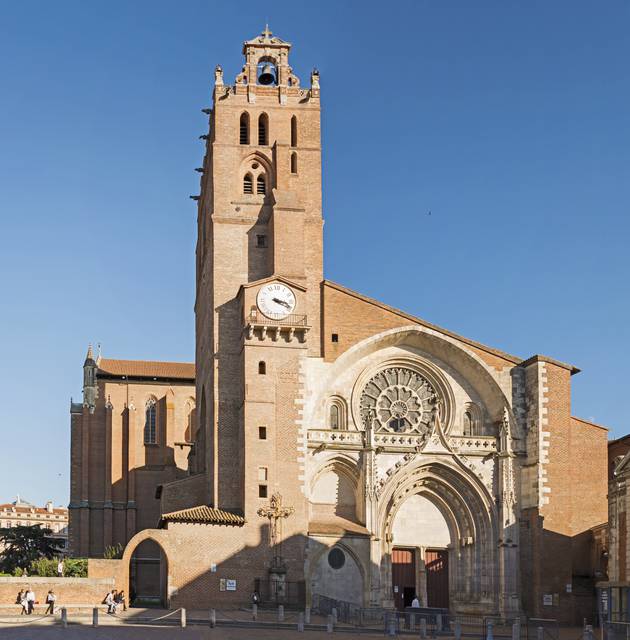
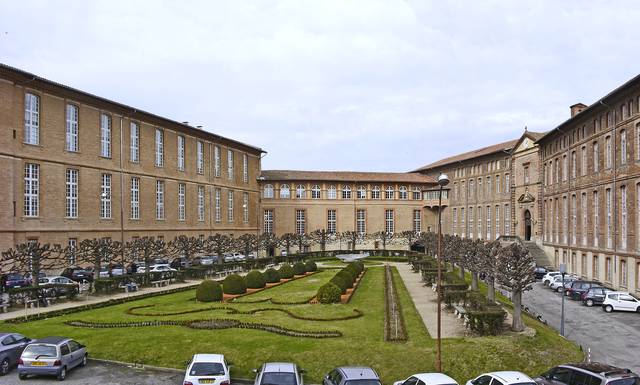
The city was a Roman settlement, "Tolosa", and the smaller inner streets still follow the ancient layout. In the Middle Ages, Toulouse ruled an independent county, but it joined the Kingdom of France in 1271. In the fourteenth century, it was devastated by pogroms, the Black Death, famine, and war. Then, in the fifteenth century, it became wealthy from its monopoly on "pastel," a blue pigment extracted from woad plants, only to slump again when the monopoly was broken by indigo imports from India. In 1750, after its recovery, the city was rebuilt in pink terracotta brick, giving rise to its nickname La ville rose. The university flourished: founded in 1229, it's one of the oldest in the world, and now has over 100,000 students. Fermat pondered his theorems here in between his legal work.
Since the late 20th century, Toulouse has become a centre of aviation and spaceflight. More than 35,000 of the inner city's 400,000 citizens work in the civil aviation or space industries, and Airbus / EADS is the largest employer in the region.
- Toulouse Tourist Office, Donjon du Capitole, Square Charles de Gaulle (in the back of the Capitole, +33 892 18 01 80. 9:30AM-6PM Tuesday to Saturday, 10AM-6PM Sunday and Monday. Visitor information centre with information on local businesses, accommodations, events and activities.
Toulouse Tourist Office, Donjon du Capitole, Square Charles de Gaulle (in the back of the Capitole, +33 892 18 01 80. 9:30AM-6PM Tuesday to Saturday, 10AM-6PM Sunday and Monday. Visitor information centre with information on local businesses, accommodations, events and activities.
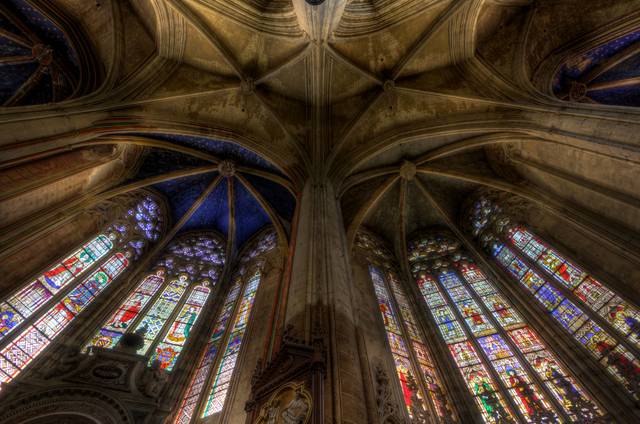
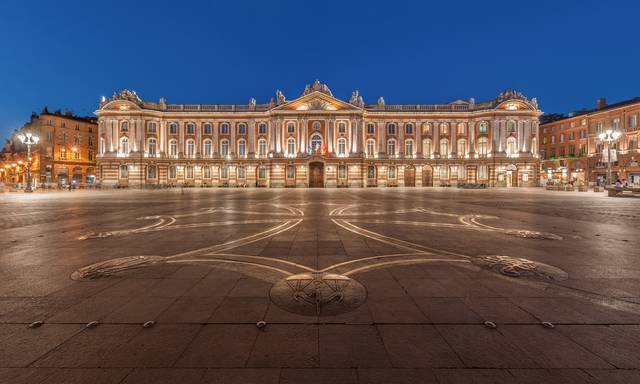
The old centre of Toulouse is east of the River Garonne: it's compact and most places of interest can easily be visited on foot. It's bounded to the east & north by Bvd Lazare Carnot / Bvd de Strasbourg, and to the south by the cathedral, rue Metz and Pont Neuf. The quays will become a good strolling spot but in early 2018 are being refurbished.
- Basilique Saint-Sernin. A red-brick church from the 11-12th Century, it may well be the largest Romanesque construction in the world - perhaps because it was an important stopover on the pilgrimage to Santiago. Huge as it is, it's the only remaining part of the former Abbey of Saint-Sernin. Notable features are the great bell-tower, the gates, the "ambulatory" passage, and the thunderous organ. In the 19th C the church was "restored" by the famous French architect Viollet-le-Duc: some of his re-imaginings of the Middle Ages are now being undone. Church free, crypts €2.50.
- Saint Raymond Museum, Place Saint-Sernin (next to Basilica Saint-Sernin, Metro: Capitole or Jeanne-d’Arc, +33 5 61 22 31 44. Tues- Sun 10AM-6PM, closed Mon. An archaeological museum with Roman artefacts from around Toulouse as well as the largest collection of Roman busts found in France. The building itself is a historic monument. Has an elevator, gift shop and free bathrooms. €4.
- Notre-Dame de La Daurade. Closed for restoration. This church was founded in the 5th century but demolished in the 18th; the present building dates from the 19th C. The church is closed for restoration until 2019. You can look in, but everything's covered in shrouds and scaffolding.
- Cathédrale Saint Etienne. daily 7.30 am - 7 pm. This great ramshackle edifice is partly Gothic but mostly Dog's Breakfast - the medieval builders have made a hash of things on a sublime scale. They half-built one church, abandoned it, started building another, abandoned that, while other sections were added and added instead of starting over with a clear site. The Archbishop of Toulouse has to come to work in this Frankencathedral.
- Hôtel d'Assézat, Place d'Assézat (corner of rue Metz & rue de la Bourse, +33 5 61 12 06 89. Tues - Sun 10.30 - 12.30 am and 1.30 pm to 6 pm (Thurs to 8 pm); closed Mon. Great mansion house built in the 16th C in Renaissance style for a rich merchant. It now houses the Fondation Bemberg, the personal art collection of Georges Bemberg (1915-2011). 8 euros adult, 5 euros concessions.
- Capitole. Guided tours of the historic rooms Mon-Fri 8.30 am - 7 pm, Sun 10 am - 7 pm. Magnificent red-brick building in Neoclassical style, lording it over the pedestrianised main square Place du Capitole. It houses City Hall (with a grandiose "Salle des Illustres") and the city's main theatre. Free.
- Pont-Neuf. Like the Parisian Pont-Neuf, the name means "New Bridge" - though it's by far the oldest bridge across the Garonne river. Construction dragged on from 1544 to 1626. The arches aren't symmetrical - they were supposed to represent the face and haunches of a lion, but you'll need a lot of imagination to visualise that.
The water-tower ("chateau d'eau") at its west end hosts photography exhibitions. - Couvent des Jacobins, rue Lakanal. Tues - Sun 10 am - 6 pm, closed Mon. Deconsecrated mother-church of the Dominicans (called Jacobins in France because their first convent was in rue St-Jacques in Paris). Built in Gothic red brick, it contains St Thomas Aquinas' relics. It's now a museum, enclosing the convent, refectory, chapel of St Antonin and Salle Capitulaire. 4 euros.
- Musée des Augustins, 21 rue de Metz, +33 5 61 22 21 82. Wed-Mon 10AM - 6PM, to 8PM Weds; closed Tues. Fine arts museum set in a former Augustinian monastery surrounding two delightful cloisters. Adult 5€, concessions 3€., free first Sunday of the month.
Basilique Saint-Sernin. A red-brick church from the 11-12th Century, it may well be the largest Romanesque construction in the world - perhaps because it was an important stopover on the pilgrimage to Santiago. Huge as it is, it's the only remaining part of the former Abbey of Saint-Sernin. Notable features are the great bell-tower, the gates, the "ambulatory" passage, and the thunderous organ. In the 19th C the church was "restored" by the famous French architect Viollet-le-Duc: some of his re-imaginings of the Middle Ages are now being undone. Church free, crypts €2.50.
Saint Raymond Museum, Place Saint-Sernin (next to Basilica Saint-Sernin, Metro: Capitole or Jeanne-d’Arc, +33 5 61 22 31 44. Tues- Sun 10AM-6PM, closed Mon. An archaeological museum with Roman artefacts from around Toulouse as well as the largest collection of Roman busts found in France. The building itself is a historic monument. Has an elevator, gift shop and free bathrooms. €4.
Notre-Dame de La Daurade. Closed for restoration. This church was founded in the 5th century but demolished in the 18th; the present building dates from the 19th C. The church is closed for restoration until 2019. You can look in, but everything's covered in shrouds and scaffolding.
Cathédrale Saint Etienne. daily 7.30 am - 7 pm. This great ramshackle edifice is partly Gothic but mostly Dog's Breakfast - the medieval builders have made a hash of things on a sublime scale. They half-built one church, abandoned it, started building another, abandoned that, while other sections were added and added instead of starting over with a clear site. The Archbishop of Toulouse has to come to work in this Frankencathedral.
Hôtel d'Assézat, Place d'Assézat (corner of rue Metz & rue de la Bourse, +33 5 61 12 06 89. Tues - Sun 10.30 - 12.30 am and 1.30 pm to 6 pm (Thurs to 8 pm); closed Mon. Great mansion house built in the 16th C in Renaissance style for a rich merchant. It now houses the Fondation Bemberg, the personal art collection of Georges Bemberg (1915-2011). 8 euros adult, 5 euros concessions.
Capitole. Guided tours of the historic rooms Mon-Fri 8.30 am - 7 pm, Sun 10 am - 7 pm. Magnificent red-brick building in Neoclassical style, lording it over the pedestrianised main square Place du Capitole. It houses City Hall (with a grandiose "Salle des Illustres") and the city's main theatre. Free.
Pont-Neuf. Like the Parisian Pont-Neuf, the name means "New Bridge" - though it's by far the oldest bridge across the Garonne river. Construction dragged on from 1544 to 1626. The arches aren't symmetrical - they were supposed to represent the face and haunches of a lion, but you'll need a lot of imagination to visualise that.
The water-tower ("chateau d'eau") at its west end hosts photography exhibitions.
Couvent des Jacobins, rue Lakanal. Tues - Sun 10 am - 6 pm, closed Mon. Deconsecrated mother-church of the Dominicans (called Jacobins in France because their first convent was in rue St-Jacques in Paris). Built in Gothic red brick, it contains St Thomas Aquinas' relics. It's now a museum, enclosing the convent, refectory, chapel of St Antonin and Salle Capitulaire. 4 euros.
Musée des Augustins, 21 rue de Metz, +33 5 61 22 21 82. Wed-Mon 10AM - 6PM, to 8PM Weds; closed Tues. Fine arts museum set in a former Augustinian monastery surrounding two delightful cloisters. Adult 5€, concessions 3€., free first Sunday of the month.
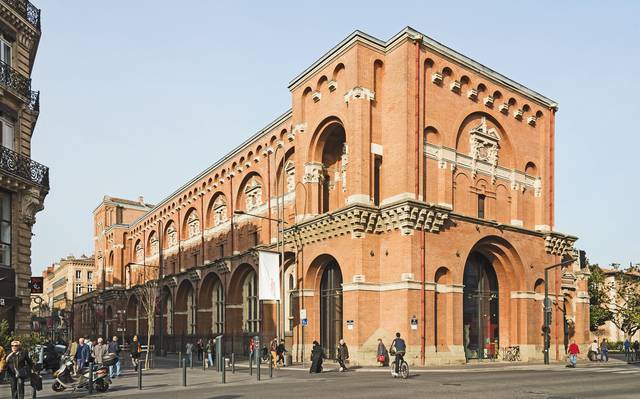
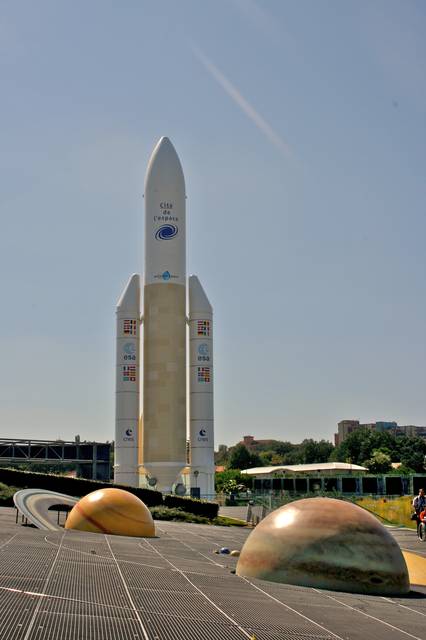
- Les Abattoirs, 76 allee Charles de Fitte (west bank of river just S of Pont des Catalans. Wed-Sun noon - 6PM, to 8PM Thurs; closed Mon & Tues. Vast former abattoir now housing a contemporary arts museum, and there is also a nice garden overlooking the Garonne. 7€, concessions 4€.
- Jardin des Plantes. You'll think you're walking into a monastery: the present gardens were located in an old Carmelite friary, before expanding south. Just north on Allée Jules Guesde is the Natural History Museum (Tues-Sun 10-6, closed Mon)
- Musée Georges Labit, 17 rue du Japon (2 km SE of centre: Metro B to Verdier, bus 10 to Demouilles. Wed-Mon 11AM - 5PM Oct-May; to 6PM Jun-Sep; closed Tues. Asian arts and Egyptian antiquities museum in an exotic and Mediterranean garden built in 1893. 4€, concessions 2€.
- Airbus Visit, +33 5 34 39 42 00. Advance online booking is essential, via Manatours - at least 2 days in advance if you don't have an EU passport or identity card. There's a 90 minute guided tour of the Airbus A380 production line, in the JJ Lagardere factory (possibly the biggest building in the world) then a visit to the Aeroscopia Museum. Tours nowadays don't take in the older factory in the Clement Ader building. 24€ for tour + museum.
- Cité de l'Espace, ave Jean Gornod (5 km E of centre off A61. Take Metro to Jolimont then bus 37 towards La Plaine; or bus 15 from downtown and walk.. Daily 10 am to 6 pm (to 5 pm Thurs & Fri). Scientific theme park with interactive exhibits on space travel and replica spacecraft. Most suited to 5-14 year olds. Adults €21, children €15.50 (July & Aug €24 / €17.50).
Les Abattoirs, 76 allee Charles de Fitte (west bank of river just S of Pont des Catalans. Wed-Sun noon - 6PM, to 8PM Thurs; closed Mon & Tues. Vast former abattoir now housing a contemporary arts museum, and there is also a nice garden overlooking the Garonne. 7€, concessions 4€.
Jardin des Plantes. You'll think you're walking into a monastery: the present gardens were located in an old Carmelite friary, before expanding south. Just north on Allée Jules Guesde is the Natural History Museum (Tues-Sun 10-6, closed Mon)
Musée Georges Labit, 17 rue du Japon (2 km SE of centre: Metro B to Verdier, bus 10 to Demouilles. Wed-Mon 11AM - 5PM Oct-May; to 6PM Jun-Sep; closed Tues. Asian arts and Egyptian antiquities museum in an exotic and Mediterranean garden built in 1893. 4€, concessions 2€.
Airbus Visit, +33 5 34 39 42 00. Advance online booking is essential, via Manatours - at least 2 days in advance if you don't have an EU passport or identity card. There's a 90 minute guided tour of the Airbus A380 production line, in the JJ Lagardere factory (possibly the biggest building in the world) then a visit to the Aeroscopia Museum. Tours nowadays don't take in the older factory in the Clement Ader building. 24€ for tour + museum.
Cité de l'Espace, ave Jean Gornod (5 km E of centre off A61. Take Metro to Jolimont then bus 37 towards La Plaine; or bus 15 from downtown and walk.. Daily 10 am to 6 pm (to 5 pm Thurs & Fri). Scientific theme park with interactive exhibits on space travel and replica spacecraft. Most suited to 5-14 year olds. Adults €21, children €15.50 (July & Aug €24 / €17.50).
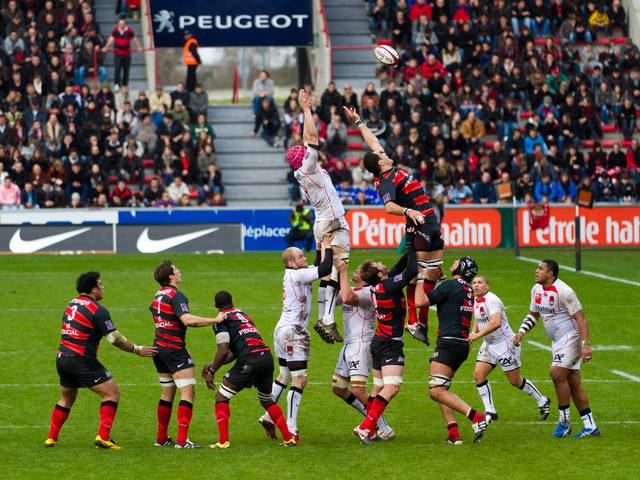
- Take a walk through the city, out over the Pont Neuf, along the river quays, or along the Canal du Midi.
- Canal du Midi. This is the eastern and more interesting section of the "Canal des Deux Mers", and it's a . It starts from the River Garonne in Toulouse, so its first few miles are walkable from the centre. But the best sections are further out, as it climbs the hillside then descends through Carcassonne and Beziers towards Étang de Thau on the Med. So you probably want a bike or canal barge to explore it.
- Party at St Pierre Place.: very popular among Toulouse's students
- Rent a bike: see "Get around".
- Watch a Rugby match. Stade Toulousain. ("Les rouges et noirs") play Rugby Union in the French Top 14. They're seldom out of the top places and so qualify for European tournaments - they've won the European Rugby Champions Cup a record four times. Their home ground is Stade Ernest Wallon, but big matches are often played at the Stadium Municipal. If you prefer league, you might do better in England, as Toulouse Olympique play there in the Championship—though home matches are held in Toulouse at Stade Ernest-Argelès. Their second-string team Toulouse Olympique Broncos remain in the French Elite One Championship, playing at Stade de Minimes.
- Watch soccer: Toulouse FC are based at the Stadium Municipal. and play in French Ligue 1.
Toulouse is one of the most alternative French cities. It started in 1939 with an influx of Spanish republicans who'd lost the Civil War and fled through the Pyrenees, and continued in the 1960s with an influx from Algeria. Their tradition continues with the city's students, squatters, and artistic movements.
- Mix'Art Myrys. One of the oldest and most active squat of artists within the city.
- La Sainte Dynamo, 6 rue Amélie (Metro Jean Jaurès.. Wed-Sun 6 pm - 4 am. Bar & club located in a former sex club and a great place to see live bands and other performances - ça bouge!
- Les Motivées is an association that is very active on the political and social scene in Toulouse, and that organises or takes part in many free events, strikes, concerts, etc. throughout the year. They founded a political party a few years ago that is pretty active locally and holds a few positions with the City Hall Council. Check also the Tactikollectif their fellow co-working association on events like festivals, etc. that has its origin in the Northern quarters of Toulouse, which are the ones with social housing and lower quality of life.
- La Grainerie, rue St Jean (5 km east of town on brownfield site just beyond A61. Hosts various collectives of artists every year, has a special interest in circus.
- L'Usine, 6 Impasse Marcel Paul, off Bvd Marcel Paul, Tournefeuille. Another residence for artists and collectives.
- COUAC. Defends the local associative and alternative cultural world, whereas the Toulouse Réseau Unitaire Citoyen aims at stirring local, social and political debates.
Mix'Art Myrys. One of the oldest and most active squat of artists within the city.
La Sainte Dynamo, 6 rue Amélie (Metro Jean Jaurès.. Wed-Sun 6 pm - 4 am. Bar & club located in a former sex club and a great place to see live bands and other performances - ça bouge!
Les Motivées is an association that is very active on the political and social scene in Toulouse, and that organises or takes part in many free events, strikes, concerts, etc. throughout the year. They founded a political party a few years ago that is pretty active locally and holds a few positions with the City Hall Council. Check also the Tactikollectif their fellow co-working association on events like festivals, etc. that has its origin in the Northern quarters of Toulouse, which are the ones with social housing and lower quality of life.
La Grainerie, rue St Jean (5 km east of town on brownfield site just beyond A61. Hosts various collectives of artists every year, has a special interest in circus.
L'Usine, 6 Impasse Marcel Paul, off Bvd Marcel Paul, Tournefeuille. Another residence for artists and collectives.
COUAC. Defends the local associative and alternative cultural world, whereas the Toulouse Réseau Unitaire Citoyen aims at stirring local, social and political debates.
Take a walk through the city, out over the Pont Neuf, along the river quays, or along the Canal du Midi.
Canal du Midi. This is the eastern and more interesting section of the "Canal des Deux Mers", and it's a . It starts from the River Garonne in Toulouse, so its first few miles are walkable from the centre. But the best sections are further out, as it climbs the hillside then descends through Carcassonne and Beziers towards Étang de Thau on the Med. So you probably want a bike or canal barge to explore it.
Party at St Pierre Place.: very popular among Toulouse's students
Rent a bike: see "Get around".
Watch a Rugby match. Stade Toulousain. ("Les rouges et noirs") play Rugby Union in the French Top 14. They're seldom out of the top places and so qualify for European tournaments - they've won the European Rugby Champions Cup a record four times. Their home ground is Stade Ernest Wallon, but big matches are often played at the Stadium Municipal. If you prefer league, you might do better in England, as Toulouse Olympique play there in the Championship—though home matches are held in Toulouse at Stade Ernest-Argelès. Their second-string team Toulouse Olympique Broncos remain in the French Elite One Championship, playing at Stade de Minimes.
Watch soccer: Toulouse FC are based at the Stadium Municipal. and play in French Ligue 1.
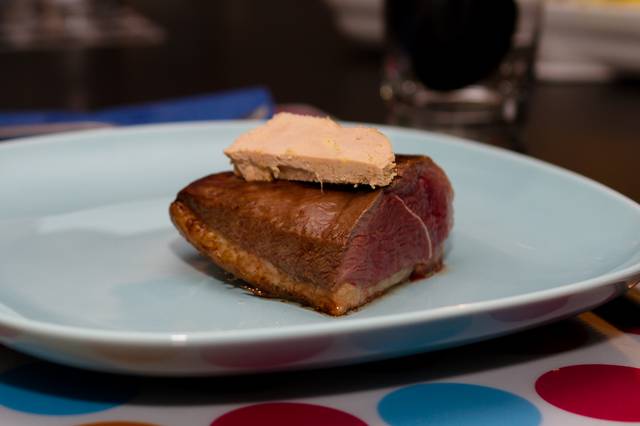 Like all of France, you will not be disappointed with the food Toulouse offers.
Like all of France, you will not be disappointed with the food Toulouse offers.
Duck is a regional specialty, and thus many restaurants will offer duck for dinner such as canard confit (roast duck leg) or canard foie gras (duck liver delicacy).
Cassoulet is the most famous regional dish, a stew made with white beans, various kinds of meat, and pork skin. Sometimes the dish's meat is Toulouse sausage, another specialty of Toulouse.
Violets are used to make candy which is sold in most tourist shops around Toulouse.
The areas around Place du Capitole, Bvd de Strasbourg and Place St Georges are lined with cafes and restaurants. The restaurants generally open for dinner around 7 pm.
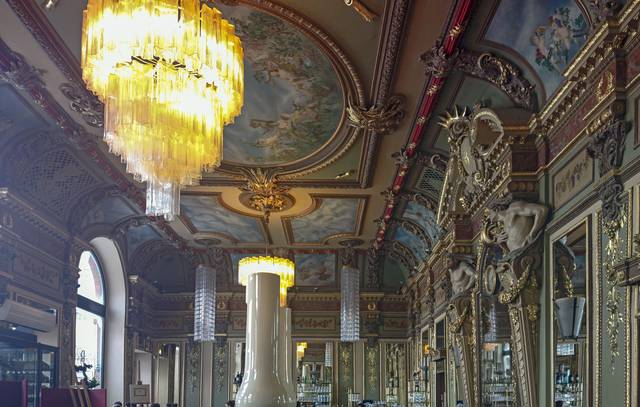
- Le Délicatessen, 11 Rue Riquet (one block east of Bvd Carnot; Metro François-Verdier, +33 5 61 62 49 00. Daily 5 pm to 2 am, Sat & Sun from 6 pm. Busy tapas bar with friendly atmosphere that offers meals, beers on tap and a real happy hour; tapas here are tasty, cheap and generous. It's a popular place so it's better to get there a little earlier in the evening.
- Les Halles Victor Hugo, Place Victor Hugo. Tues-Sat lunchtime. The ground floor is a big food market, stalls close by 1 pm. Upstairs are five little restaurants which take orders till 2.30 pm: Au Bon Graillou, Chez Attila, L'Imperiale, Le Louchebem & Le Magret. No booking, and popular with market shoppers & stall-holders so you may have to wait for a table.
- Genty Magre, 3 rue Gentymagre (one block N of rue Metz, +33 5 61 21 38 60. Tues-Sat lunch & dinner. Set menu is good value at 40 euros, plus 15 euros to sample 3 wines.
Le Délicatessen, 11 Rue Riquet (one block east of Bvd Carnot; Metro François-Verdier, +33 5 61 62 49 00. Daily 5 pm to 2 am, Sat & Sun from 6 pm. Busy tapas bar with friendly atmosphere that offers meals, beers on tap and a real happy hour; tapas here are tasty, cheap and generous. It's a popular place so it's better to get there a little earlier in the evening.
Les Halles Victor Hugo, Place Victor Hugo. Tues-Sat lunchtime. The ground floor is a big food market, stalls close by 1 pm. Upstairs are five little restaurants which take orders till 2.30 pm: Au Bon Graillou, Chez Attila, L'Imperiale, Le Louchebem & Le Magret. No booking, and popular with market shoppers & stall-holders so you may have to wait for a table.
Genty Magre, 3 rue Gentymagre (one block N of rue Metz, +33 5 61 21 38 60. Tues-Sat lunch & dinner. Set menu is good value at 40 euros, plus 15 euros to sample 3 wines.
- Violet liquor. is sold in most tourist shops and sometimes at the train station.
Violet liquor. is sold in most tourist shops and sometimes at the train station.
Opening hours in Toulouse are generally Mon-Sat 9AM-1PM and 3PM-7PM, but there are numerous exceptions. Do note that shops, other than restaurants, do not open on Sundays (most likely by law).
- As Toulouse is a city of aviation and spaceflight, check Airbus and the Cité de l'Espace for souvenirs
- There's a flea market every Saturday morning in just outside of the Basilique Saint Sernin. While it does not offer anything too special as flea markets go it's a great way to mingle with a local crowd. Another flea market is held every first weekend of the month at the Allées François Verdier, at the Grand Rond.
- The Marché Saint Aubin is a farmer's market surrounding the Saint Aubin basilica every Sunday morning, selling local vegetables and fruits. The atmosphere is very relaxed and there is often live music and dancing.
- Every weekday morning, the Boulevard de Strasbourg hosts the city's most affordable vegetable and fruit market.
- There are excellent second hand clothing shops or "friperies", especially on Rue Gambetta and in the whole district behind the 'Ecole des Beaux Arts', around the 'place de la Bourse' which is the historical textile production quarter of Toulouse
- If you are on a budget, the supermarkets where most students use to go are the brands 'Lidl' and 'Leader Price'. Those are to be found more on the 'edges' of the city (though some are accessible with the underground). In the centre, go for Champion or Géant Casino.
- Violets. are turned into any and all items for gifts, soap, perfume, candy, etc.
As Toulouse is a city of aviation and spaceflight, check Airbus and the Cité de l'Espace for souvenirs
There's a flea market every Saturday morning in just outside of the Basilique Saint Sernin. While it does not offer anything too special as flea markets go it's a great way to mingle with a local crowd. Another flea market is held every first weekend of the month at the Allées François Verdier, at the Grand Rond.
Violets. are turned into any and all items for gifts, soap, perfume, candy, etc.
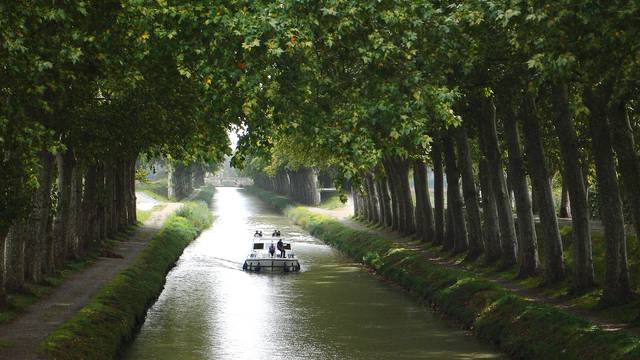
- Canada Canada, 10 rue Jules de Resseguier, +33 5 61 52 19 06. Mon-Fri 9-noon.
- Portugal Portugal, 33 Avenue Camille Pujol, +33 5 6180 4345. Mon-Fri 9-5.
- United Kingdom The UK Consulate in Toulouse has closed. Call the British Embassy in Paris on +33 (0)1 44 51 31 00.
- United States United States, 25, allées Jean Jaurès, +33 5 3441 3650.
Canada Canada, 10 rue Jules de Resseguier, +33 5 61 52 19 06. Mon-Fri 9-noon.
Portugal Portugal, 33 Avenue Camille Pujol, +33 5 6180 4345. Mon-Fri 9-5.
United States United States, 25, allées Jean Jaurès, +33 5 3441 3650.
- The main local TV channel is TV Sud. The city's own channel TLT folded in 2015.
- Intramuros is a free weekly local newspaper covering local film, theatre, concerts and other events.
- The local edition of the newspaper La Dépêche du Midi is available in print and online.
An easy day-trip is to Albi, childhood home of Toulouse-Lautrec. His ancestral home now houses a gallery of his work.
It's a simple day-trip to Carcassonne, but you really ought to stay overnight in its fantastical citadel, which directly inspired Disney Castle.
Following the river downstream or its parallel canal leads you via Montauban, Moissac and Agen to Bordeaux. Branching north at Montauban leads to the picturesque town of Puy l'Eveque on the River Lot.
There's a very scenic train route from Toulouse through the Pyrenees to Barcelona. From Toulouse main station take the local train via Vernet d'Ariège to Foix (75 mins, every couple of hours.) Several trains continue for another 75 mins to L'Hospitalet-pres-L'Andorra (the closest railway station to Andorra) and Latour-de-Carol / Entveig on the Spanish border (3 hours altogether). Latour is an oddity: it's in France sandwiched between two tracts of Spain: the Spanish exclave of Llivia is just north. And it's a station with three different railway gauges: European (SNCF) standard, Spanish (Renfe) standard, and the metre-gauge "Little Yellow Train". The Spanish trains run south to Barcelona Sants 5 times a day, 3 hours. (They're classed as suburban trains so they're not on mainline timetables. Search on Renfe Cercanias for Barcelona, and use the Spanish name "La Tour de Querol".) The Little Yellow Train is a tourist train that climbs over the mountains to Villefranche-de-Conflent (3 hours, with connections onward to Perpignan). It runs twice every day throughout the year. Finding online timetables is difficut, try the Cerdagne region website.
